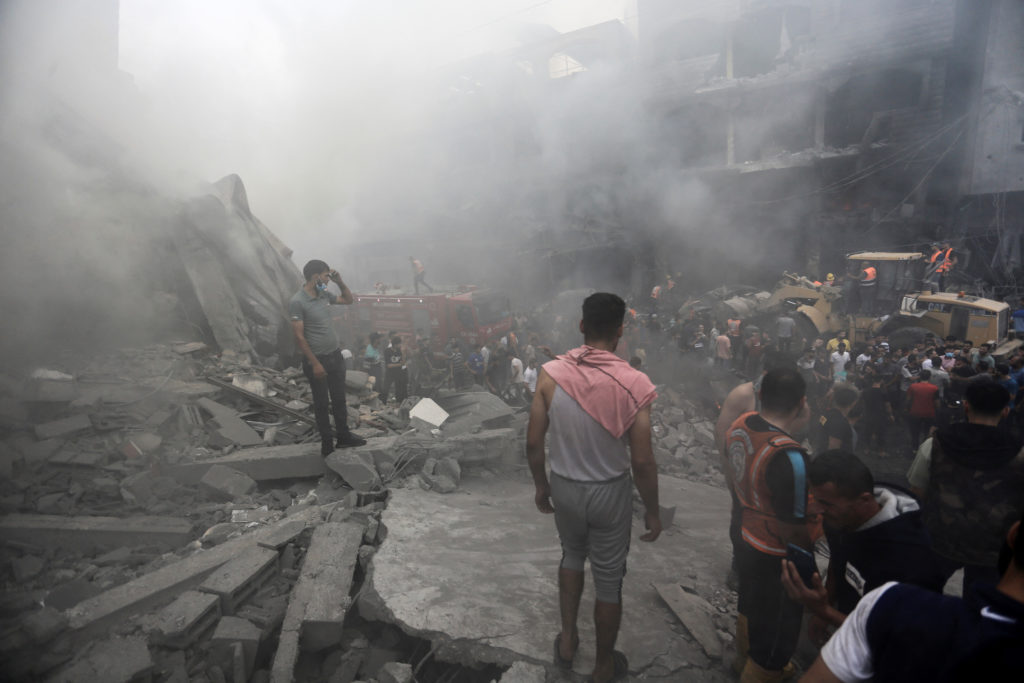The UK, France, and Germany have called on Iran not to escalate tensions and to pursue negotiations after UN sanctions were reinstated on Saturday.
The three countries said they had no choice but to bring back the sweeping measures against Tehran as a last resort over its continued nuclear escalation and lack of cooperation.
We urge Iran to refrain from any escalatory action, they said in a joint statement, adding: The reimposition of UN sanctions is not the end of diplomacy.
Iran's President Masoud Pezeshkian insisted last week that the country had no intention of developing nuclear weapons, and condemned the re-imposition of international sanctions as unfair, unjust, and illegal.
The United Nations' sweeping economic and military sanctions were reimposed on Iran at 00:00 GMT on Saturday - a decade after they were lifted in a landmark international deal over its nuclear programme.
Iran stepped up banned nuclear activity after the US quit the deal in 2016. Donald Trump pulled the US out in his first term as president, criticizing the deal - the Joint Comprehensive Plan of Action - negotiated under his predecessor Barack Obama, as flawed.
Talks between the three countries and Iran on the sidelines of the UN General Assembly earlier this week failed to produce a deal that would have delayed the sanctions being reimposed.
In a joint statement early on Sunday, the foreign ministers of the three European countries, known as the E3, said: Given that Iran repeatedly breached these commitments, the E3 had no choice but to trigger the snapback procedure, at the end of which those resolutions were brought back into force.
They cited Iran's failure to take the necessary actions to address our concerns, nor to meet our asks on extension, despite extensive dialogue.
Specifically, they mentioned Tehran's refusal to cooperate with the UN nuclear watchdog, the IAEA.
Iran has not authorized IAEA inspectors to regain access to Iran's nuclear sites, nor has it produced and transmitted to the IAEA a report accounting for its stockpile of high-enriched uranium.
Iran suspended IAEA inspection after Israel and the US bombed several of its nuclear sites and military bases in June.
Pezeshkian has walked back from his earlier threats for Iran to quit the Non-Proliferation Treaty.
But, speaking to reporters on Friday, he added that Tehran would need reassurances that its nuclear facilities would not be attacked by Israel in order to normalize its nuclear enrichment programme.
Iran recalled its ambassadors to Britain, France, and Germany for consultations on Saturday.



















